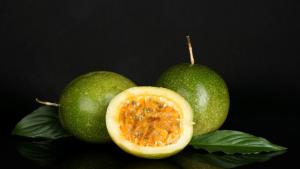Does Water Dissolve Plant Protein?
Water is a universal solvent and is often used to dissolve various substances. However, when it comes to plant protein, the answer to whether or not water can dissolve it is not straightforward. In this article, we explore the chemistry behind plant protein solubility in water and what factors affect its ability to dissolve.
The Chemistry Behind Protein Solubility
Proteins are long chains of amino acids, and their solubility in water depends on the interactions between these amino acids and water molecules. Amino acids have both hydrophilic and hydrophobic components – the hydrophilic component attracts water molecules, while the hydrophobic component repels them.
When a protein is placed in water, the hydrophilic components of the amino acids interact with the water molecules, while the hydrophobic components interact with each other, causing the protein to fold and conform to a specific shape. This shape determines whether the protein will be soluble in water or not.
Why Some Plant Proteins are Water-soluble
Plant proteins consist of a diverse range of amino acids and have different structures and properties that determine their solubility in water. Some plant proteins are highly water-soluble, such as those found in soybeans and peas, while others, such as those in wheat and corn, are less soluble.
Factors that affect the water solubility of plant proteins include the size and shape of the protein molecule, the types of amino acids present, and the pH of the solution. For example, acid and heat treatments can break down the protein structure, making it more soluble in water.
What Happens When Plant Proteins Dissolve in Water?
When plant proteins dissolve in water, they create a solution that can have various applications in the food industry. For example, soy protein isolate is commonly used as a meat substitute in vegetarian and vegan products, while pea protein isolate is used in protein powders and drink supplements.
When a plant protein dissolves in water, it can also form gels, depending on the conditions. This gelation process can occur by the addition of acid, heat, or salts. For example, in tofu production, soy milk is heated and coagulated with calcium sulfate, forming a gel-like texture.
Conclusion
In summary, some plant proteins can dissolve in water, while others cannot, and this solubility depends on various factors, including protein structure and the pH of the solution. Understanding the solubility of plant proteins is important in the food industry for developing products with desired functional and sensory properties.

 how many times do yo...
how many times do yo... how many planted tre...
how many planted tre... how many pine trees ...
how many pine trees ... how many pecan trees...
how many pecan trees... how many plants comp...
how many plants comp... how many plants can ...
how many plants can ... how many plants and ...
how many plants and ... how many pepper plan...
how many pepper plan...





























